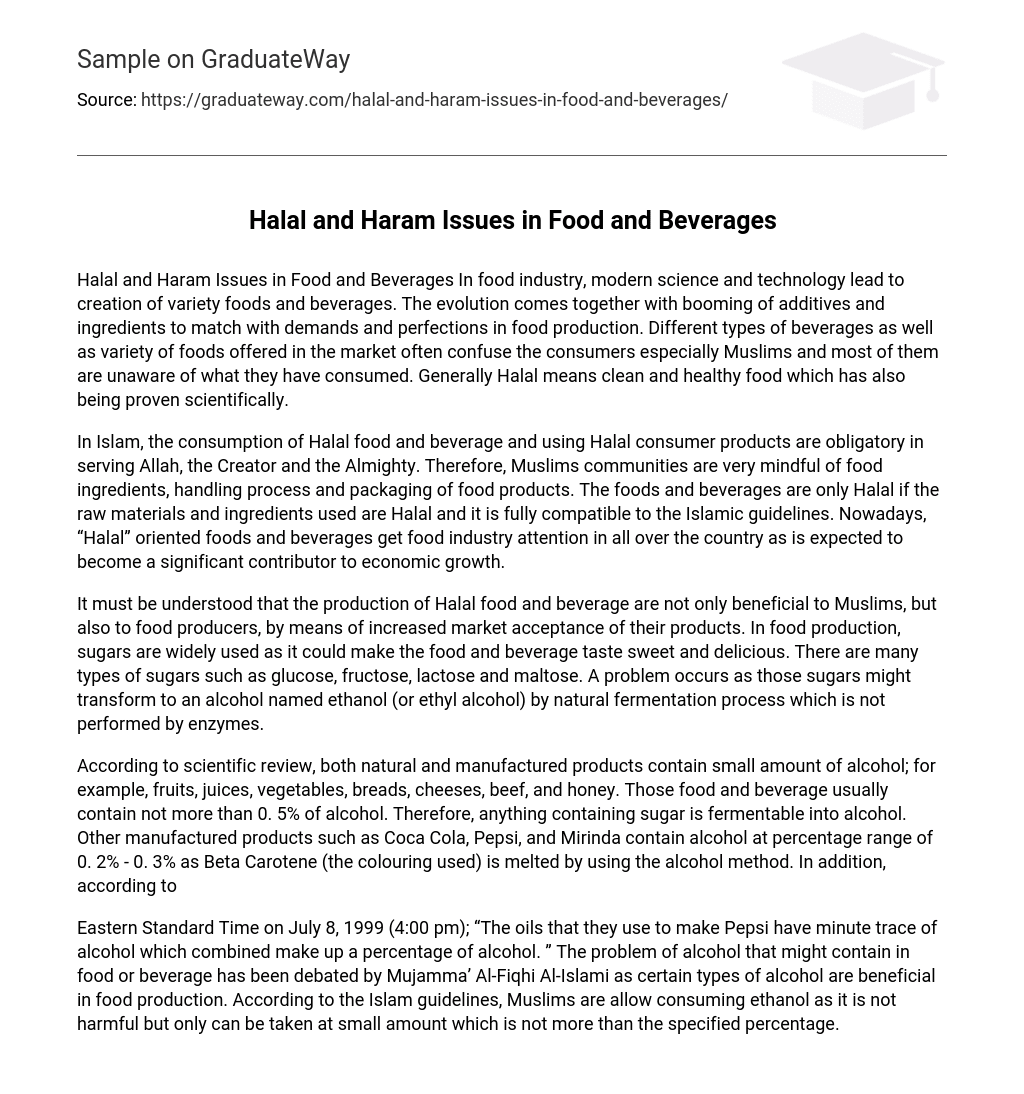Modern science and technology have revolutionized the food industry, offering a diverse selection of food and drink options. This progress has also prompted the creation of various additives and ingredients to meet the growing demands in food production. As a result, consumers, including Muslims, may feel unsure about what to consume due to the overwhelming variety of choices. Halal, which denotes clean and healthy food, is widely recognized as scientifically beneficial.
Muslims are required by their religion to consume Halal food and beverages as well as use Halal consumer products. They carefully consider the ingredients, handling process, and packaging of these products. In order to be deemed Halal, a product must follow Islamic guidelines and utilize Halal raw materials and ingredients. The emphasis on Halal-focused foods and beverages within the food industry is anticipated to greatly affect economic growth.
Both Muslims and producers benefit from creating halal food and drinks as it enhances the market acceptance of products. The production of food often involves the use of sugars such as glucose, fructose, lactose, and maltose to enhance sweetness and flavor. However, a concern arises due to the natural fermentation of these sugars into ethanol (or ethyl alcohol) without the need for enzymes.
According to a scientific review, various natural and manufactured products like fruits, juices, vegetables, breads, cheeses, beef, and honey contain minimal alcohol. Generally, the alcohol content in these food and beverage items is less than 0.5%.
To sum up, fermentation can convert any substance containing sugar into alcohol. This process is applicable to several manufactured products like Coca Cola, Pepsi, and Mirinda. Typically, these products contain a minimal amount of alcohol (around 0.2% to 0.3%) due to the utilization of the alcohol method for dissolving Beta Carotene, the coloring agent used in them. Additionally, it has been noted that the oils employed in Pepsi production contain minuscule amounts of alcohol which collectively contribute to the overall alcohol percentage present in the beverage.
The issue of alcohol in food and drinks has been discussed by Mujamma’ Al-Fiqhi Al-Islami. They acknowledge that certain forms of alcohol can be beneficial in the production of food. Islamic guidelines permit Muslims to consume ethanol as long as it is not harmful and is consumed in moderation, within the specified percentage.





